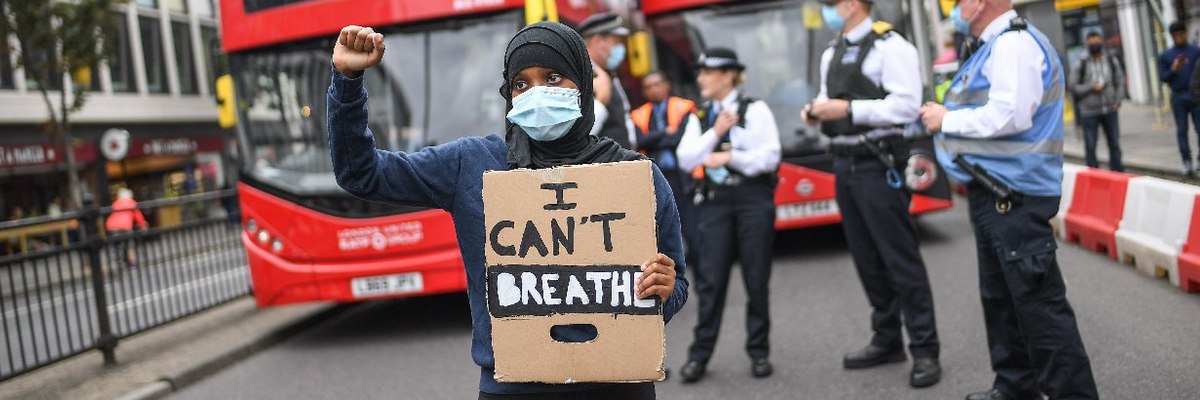Black, Asian and Minority Ethnic Britons tell us how race has affected their lives, whether things are getting better, and what would help
With the Black Lives Matters protests originating in the US shining a spotlight on racial inequality in recent months, a new YouGov survey of BAME Britons shows the extent to which race is still an issue in the UK.
BAME Britons are split on whether they have been prevented from succeeding or pursuing opportunities in their personal life as a result of their race. Four in ten (40%) say they have, while 38% say they have not – the remaining 22% are unsure.
Black Britons are noticeably more likely to feel like they have faced barriers to success, at 50%.
It is also notable that older BAME Britons feel more sure that their race hasn’t been an obstacle. Almost half (49%) of those aged 65 and above think their ethnicity hasn’t stopped them getting on in life, compared to 42% who think it has.
The key distinction between the oldest BAME Britons and their juniors is that they are less likely to answer “don’t know” to this question. Just 9% among those aged 65 and above, compared 17% of those aged 50-64, 23% of those aged 25-49, and 31% among those aged 18-24.
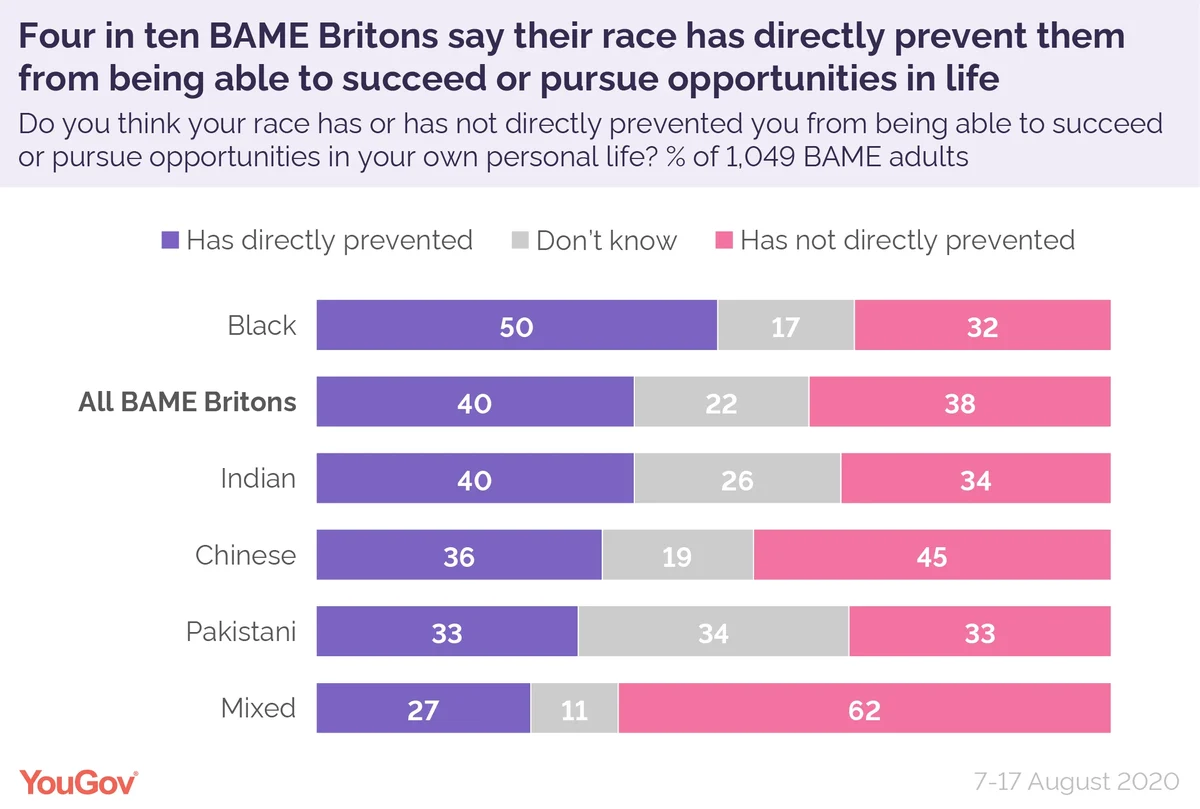
While many feel they have been held back by their race, half (52%) do think that progress has been made in race relations in Britain over the last 50 years. One in five (19%) think that there has been no change over the last half-century, while a similar figure (17%) think things have actively got worse.
Those of mixed race or Chinese ancestry are most likely to think race relations have improved (69%). Black Britons (56%) and Britons of Indian heritage (53%) are about as likely as the average to think race relations have improved, but Britons of Pakistani descent are far less likely to think so, at just 36%. Indeed, 29% of Pakistani Britons think the situation has deteriorated over the last 50 years, a rate noticeably higher than among the other groups.
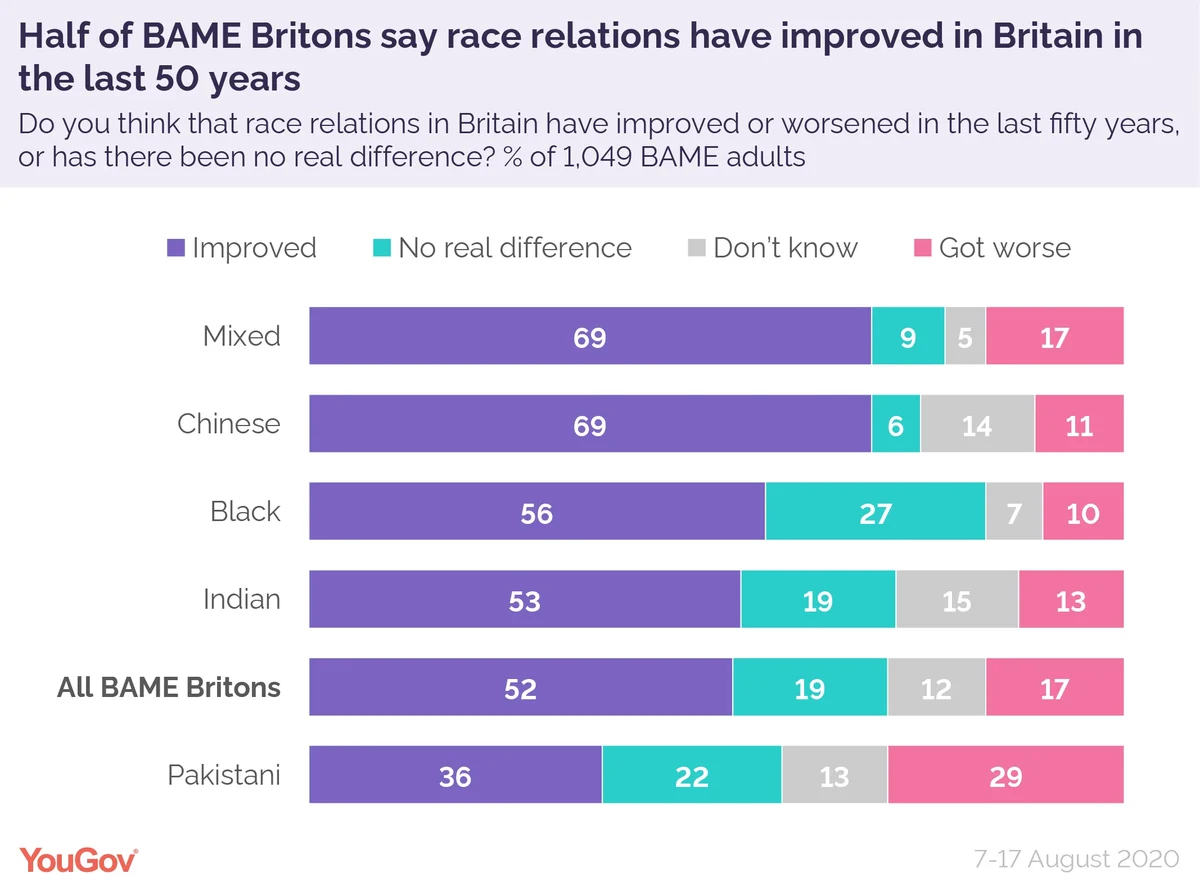
Although many think race relations are getting better, they still think it is something the next generation of ethnic minorities in Britain will have to endure. Three quarters (74%) say that racism will either “definitely” or “probably” still be a problem for the next generation, with this figure largely consistent across racial groups. Just 17% expect that it won’t be.
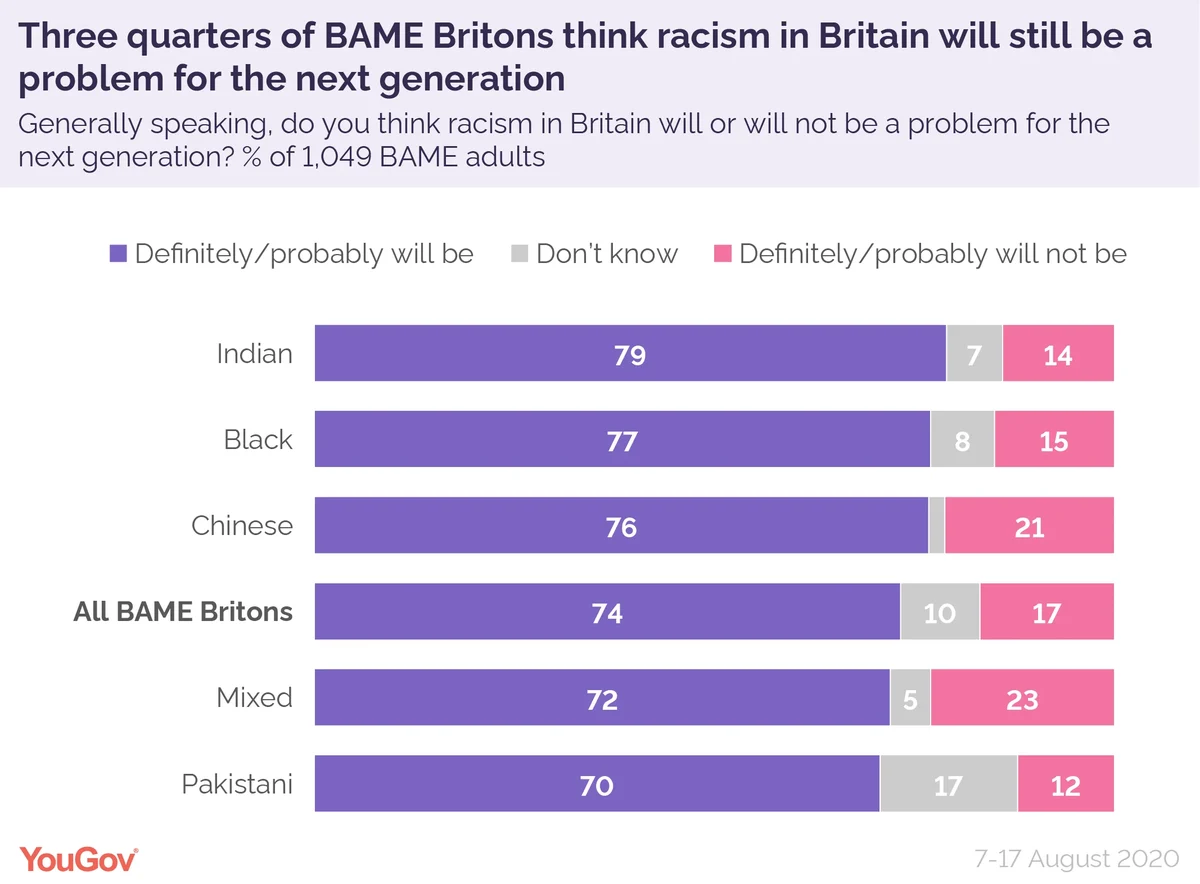
What would improve the lives of ethnic minority Britons, according to ethnic minority Britons?
With BAME Britons seeing racism as an issue that will be with us for some time, what could be the best way to combat it?
Topping the list is “changing the school curriculum to reflect more of Britain’s colonial past and diversity”, at 39%. This was the greatest desire of Black Britons (43%), as well as those of mixed race (50%) and those categorised as ‘other Asian’ (36%) and ‘other ethnicity’ (46%).
Second most desirable is “investment in mentoring and employment opportunities for young ethnic minority children”, which a third (33%) identified as one of the best ways to improve the lives of ethnic minorities. This was the answer most commonly picked by Britons of Pakistani descent (31%).
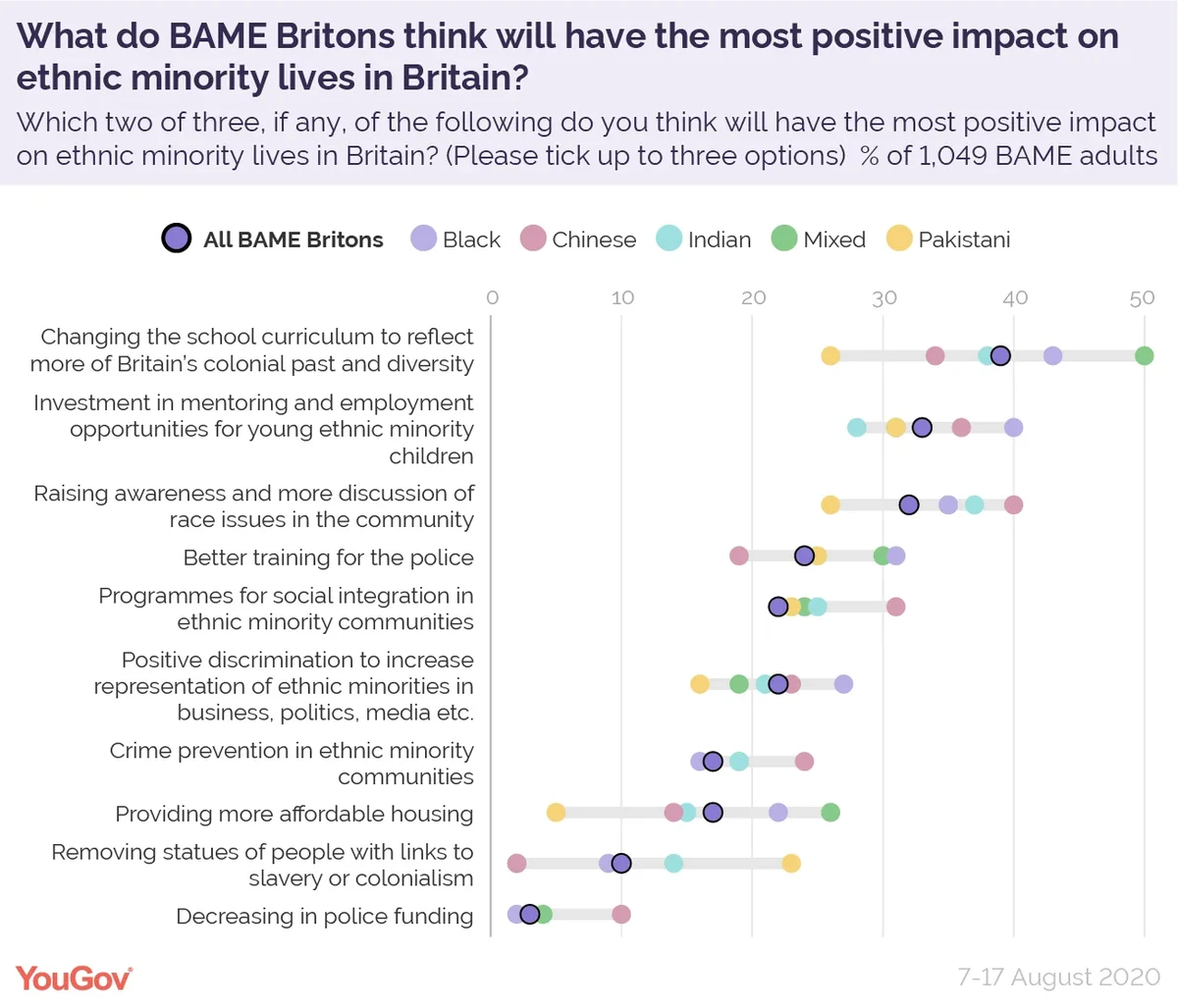
In third place, at 32%, is “raising awareness and more discussion of race issues in the community”, which is also the preferred option for Britons of Chinese lineage (40%).
Despite the police topping the list of institutions exhibiting racism, only 24% of BAME Britons chose improved training within this organisation as one of the best ways to improve lives for minorities. This made it fourth place overall. While this figure is higher among Black Britons – at 31% – the measure still ranked fourth overall for this group too.
Data from this study by Renie Anjeh originally appeared in articles in The Times (1 / 2)
